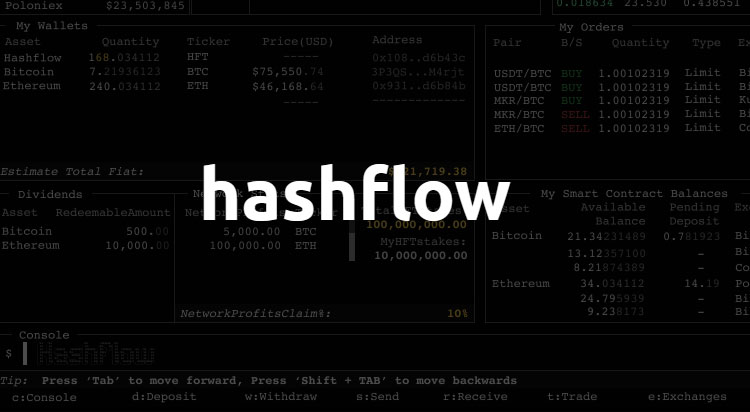Hashflow, an open protocol to bind and scale Bitcoin and Ethereum to build a scalable trust-minimized trade ecosystem, today announced it is now live.
Hashflow Network
Hashflow is a distributed network of open, trust-minimized, multi-centric hubs built on Bitcoin and Ethereum, each offering non-custodial, low latency trading across different markets.
These hubs comprise a scalable ecosystem that provides the speed, convenience and liquidity features of traditional financial exchanges and OTC desks along with the non-custody, transparency, and solvency features associated with DEXs.
Hashflow provides anyone, including exchanges, OTC desks, traders, capital allocators, liquidity providers, banks, hedge funds, sovereigns, insurers, etc., with automated issuance, execution, custody, credit, clearance, and settlement functions as well as collateral management, transparency, audited market data, and cross-chain asset swaps at nearly null cost using SPV Proofs and Proof of Solvency.
What Makes Hashflow Unique
Hashflow is the only protocol that successfully integrates Credit-Lightning and Multicentric Distributed Plasma to scale BTC and ETH and binds them together using Non-Atomic Swaps for mutual benefit without a new blockchain or sidechains.
Hashflow hubs provide the speed, convenience and liquidity features of traditional financial exchanges and OTC desks along with the non-custody, transparency, and solvency features associated with DEXs.
Hashflow addresses the capital inefficiency problem that is prevalent in the existing protocols such as Lightning and Arwen and removes the need for the hubs or super-nodes to lock up collateral in the state channels in order to start a business.
Hashflow offers cashflows as incentives. Users do not require a token to access network services. Instead, active network participants mint Hashflow Tokens (HFTs) for providing liquidity or incentivizing other participants to provide liquidity by offering competitive markets. HFT holders can stake their tokens for a mathematically guaranteed share of network profits.
